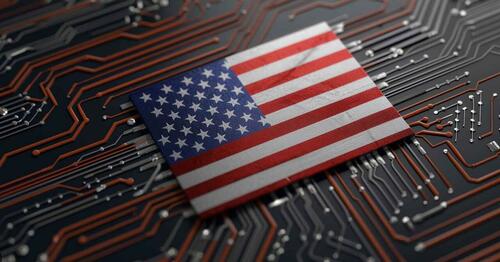Trump Weighs Plan To Require Equal U.S. Semiconductor Production Versus Imports
In news that could be an obvious tailwind for domestic semi names, not the least of which Intel, Taiwan Semiconductor and Micron come to mind, the Trump administration is considering a plan to curb U.S. dependence on foreign-made semiconductors by requiring chipmakers to balance domestic output with imports, according to the Wall Street Journal overnight.
Companies that fail to maintain a 1:1 ratio could face tariffs, people familiar with the idea said.
WSJ reported that the system would credit firms for promised U.S. production—for example, a pledge to make one million chips—allowing imports until the new plant comes online. Early exemptions could give companies time to adjust.
President Trump hinted at the proposal last month, saying tech firms that invest more in the U.S. would avoid tariffs “roughly 100%” on semiconductors. Commerce Secretary Howard Lutnick has discussed the concept with chip executives, calling it necessary for economic security.
“America cannot be reliant on foreign imports for the semiconductor products that are essential for our national and economic security,” White House spokesman Kush Desai said. “Unless officially announced by the administration, however, any reporting about our policymaking should be treated as speculative.”
The effort reflects long-standing concerns that U.S. tech companies rely too heavily on chips from abroad, particularly from Taiwan, just 80 miles from China and seen as vulnerable to conflict or natural disasters.
Implementation would be complex. Many U.S.-made chips are shipped overseas for assembly and return embedded in larger products, raising questions about how tariff values would be calculated. Tracking chip origins could also burden major firms such as Apple and Dell.
The U.S. has already committed billions under the 2022 Chips Act, though companies say customers remain reluctant to pay more for American-made components. Analysts also warn that some advanced or specialized chips may be difficult to replicate domestically.
The administration is reviewing how chip imports affect national security and is expected to announce new levies once the probe concludes.
Tyler Durden
Fri, 09/26/2025 – 07:55ZeroHedge NewsRead More





 R1
R1
 T1
T1


